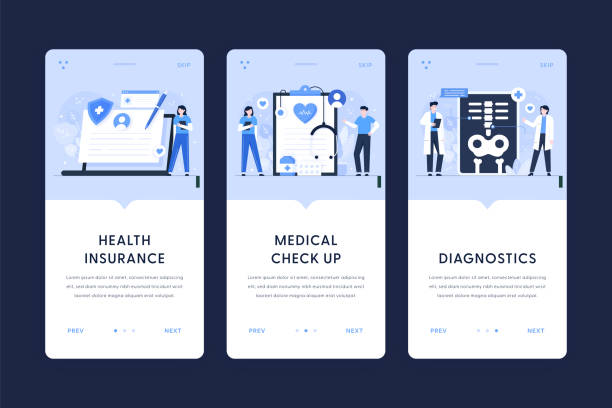Introduction
Nowadays, Health Insurance Options for Students. It covers your clinical costs when you are sick or if there should arise an occurrence of a mishap. Health insurance can safeguard students from unexpected medical expenses because they frequently face financial constraints.
Without health care coverage, even a minor sickness can turn out to be pricey, so getting health care coverage is significant. It also gives you access to preventive care, like vaccinations and regular checkups, which help you stay healthy overall.
Health Insurance

Although it is now easier to get health insurance, selecting the right plan for students can be difficult. Benefits and restrictions vary by insurance plan. The reason for this guide is to illuminate understudies about various healthcare coverage choices and assist them with settling on an educated choice.
In addition to covering medical expenses, health insurance enhances mental wellbeing and academic performance. You can cowell-being more on your studies when you know that your medical expenses are covered.
Inclusion Under the Guardians’ Medical coverage Plan
Frequently, understudies are covered under their folks’ medical coverage plan. Students under the age of 26 can continue to be covered by their parent’s plan under the Affordable Care Act. Many students find this option convenient because it doesn’t require any additional paperwork and parents already pay the premiums.
Plans for parents frequently cover a wide range of medical services. However, it is essential to determine whether the plan applies to your college. If you are attending school outside of your home state, it is possible that your new location’s insurance plan will not cover you.
In such circumstances, you might need to think about a different option for health insurance. It is advantageous financially to remain on your parent’s plan; however, it is essential to thoroughly examine the plan’s network coverage and specific benefits. Care that is not covered by your insurance plan might sometimes cost more, which could hurt your budget.
Plans for Student Health Insurance
A lot of colleges and universities provide individual student health insurance plans. These plans are made specifically to meet the requirements of students.
Plans for health insurance that are sponsored by colleges are affordable and offer complete coverage. Prescription drugs, emergency services, mental health services, and preventative care are all included in these plans.
Health Insurance Options for Students
The plans are based on how long the academic term will last. Picking school-supported plans is helpful as the enlistment interaction is straightforward, and you gain admittance to nearby medical services suppliers.
However, if you are participating in internships or study abroad programs, it is essential to confirm that the plan’s coverage extends beyond the college campus. Because their premiums are based on group rates, which are lower than individual rates, college plans are also affordable.
Students with low incomes may be eligible for the Children’s

Health Insurance Program (CHIP) or Medicaid. These administration-subsidized programs give reasonable medical care to low-pay families. Although each state’s eligibility requirements for Medicaid and CHIP are different, these programs can be extremely beneficial to students. They give thorough medical care from preventive consideration to crisis administrations.
It is simple to apply for Medicaid and CHIP, and you can do so online or through your local health department. These programs’ primary advantage is their low or no cost sharing, which makes them ideal for students with limited financial resources. However, check to see that you are eligible for Medicaid or CHIP in your state and that the plan’s benefits meet your healthcare needs.
Commercial center Medical coverage Plans
Understudies can likewise buy individual medical coverage plans through the Health Care Coverage Commercial Center. Marketplace plans have subsidies based on income that make premiums affordable under the Affordable Care Act. Commercial center plans offer different inclusion levels, like Bronze, Silver, Gold, and Platinum, ordered given various expenses and personal expenses. Students can pick a plan that fits their needs and their budget.
You should thoroughly examine the network coverage and specific benefits of the Marketplace plans you choose. It is simple to compare various plans and select the most suitable one based on your requirements using online tools and resources. Flexible and comprehensive, Marketplace plans can meet your needs for specialist, emergency, and preventative care.
Catastrophic Health Insurance Plans
Students also have this option for health insurance. These plans offer low month-to-month expenses yet have a high deductible. Major medical events like accidents and serious illnesses are the primary focus of catastrophic insurance policies.
They only cover a portion of your out-of-pocket maximum for routine medical expenses like prescriptions and doctor visits, but they can be very helpful for major medical expenses. Disastrous plans are great for youthful, sound understudies who don’t need ordinary clinical consideration and need to be monetarily arranged for significant clinical occasions.
In any case, it’s vital to comprehend that these plans include high personal expenses and you should cover routine clinical consideration costs yourself. When choosing catastrophic insurance, take your overall health and financial capabilities into account.
Health Insurance for International Students

Individually tailored health insurance plans are available for international students. These plans provide international coverage that can be used in your home country as well as your host country. Preventive, emergency, and specialist care are all covered by international student health insurance plans. Due to visa regulations, many universities require international students to have health insurance.
Make sure that the plan’s network and coverage are available in your host country and meet your specific medical requirements when choosing an international student plan. To avoid unanticipated medical expenses, it is essential to thoroughly review these plans’ benefits and limitations. Acquiring global understudy health care coverage is essential for your scholar and individual security.
Transient Health care coverage Plans
Transient health care coverage plans give brief inclusion and can be a reasonable choice for understudies, particularly if they need inclusion for a restricted period. The enrollment process for these plans is simple and typically lasts anywhere from three months to a year. The monthly costs of short-term plans are low, but they do not cover pre-existing conditions or preventative care.
Students going through transitional times, such as when they are looking for a job or switching insurance policies after graduating, benefit most from short-term plans. However, it is essential to comprehend that these plans provide insufficient coverage for long-term healthcare requirements. Analyze these plans’ benefits and drawbacks in detail.
Health Savings Accounts
HSAs are another option that students may find to be advantageous. HSAs are tax-free savings accounts that can be used to pay for medical expenses. HSAs are typically associated with health plans with high deductibles. You can use the money in an HSA for qualified medical expenses and it is tax-free. Flexibility and control over how you manage your medical expenses are provided by HSAs.
Conclusion
Contributions, earnings, and withdrawals from HSAs are all free of taxation. For long-term savings and medical emergencies, these accounts provide financial security. However, it is essential to comprehend that HSAs are associated with health plans with high deductibles, which entail significant out-of-pocket expenses.
